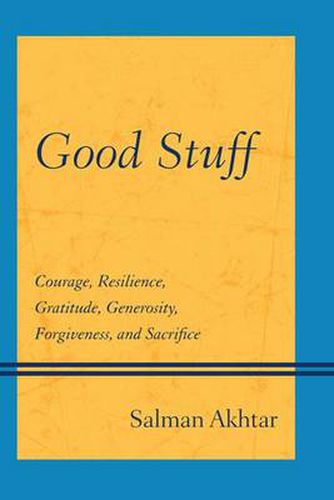Readings Newsletter
Become a Readings Member to make your shopping experience even easier.
Sign in or sign up for free!
You’re not far away from qualifying for FREE standard shipping within Australia
You’ve qualified for FREE standard shipping within Australia
The cart is loading…






Good Stuff is divided into two main parts; Part I addresses Positive Attributes and Part II, Positive Actions. The former contains chapters on Courage, Resilience, and Gratitude. The latter contains chapters on Generosity, Forgiveness, and Sacrifice. Together, the six chapters constitute a harmonious gestalt of the relational scenarios that assure enrichment of human experience. This book offers socioclinical meditations to temper Freud’s view that human beings are essentially ‘bad’ and whatever goodness they can muster is largely defensive. By elucidating the origins, dynamics, social pleasures, and clinical benefits of courage, resilience, gratitude, generosity, forgiveness, and sacrifice, this book sheds light on a corner of human experience that has remained inadequately understood by psychoanalysts and other mental health professionals.
$9.00 standard shipping within Australia
FREE standard shipping within Australia for orders over $100.00
Express & International shipping calculated at checkout
Good Stuff is divided into two main parts; Part I addresses Positive Attributes and Part II, Positive Actions. The former contains chapters on Courage, Resilience, and Gratitude. The latter contains chapters on Generosity, Forgiveness, and Sacrifice. Together, the six chapters constitute a harmonious gestalt of the relational scenarios that assure enrichment of human experience. This book offers socioclinical meditations to temper Freud’s view that human beings are essentially ‘bad’ and whatever goodness they can muster is largely defensive. By elucidating the origins, dynamics, social pleasures, and clinical benefits of courage, resilience, gratitude, generosity, forgiveness, and sacrifice, this book sheds light on a corner of human experience that has remained inadequately understood by psychoanalysts and other mental health professionals.